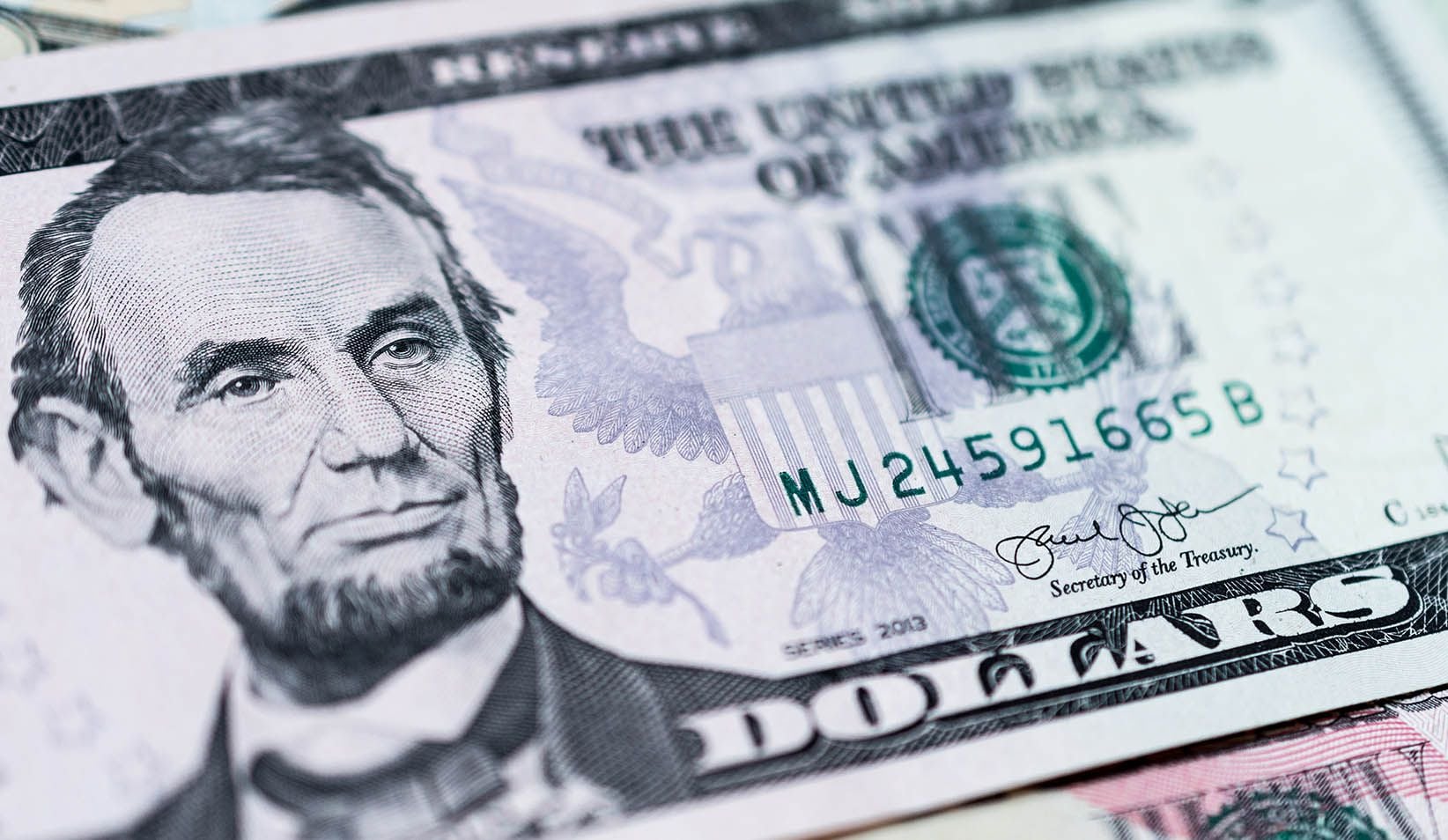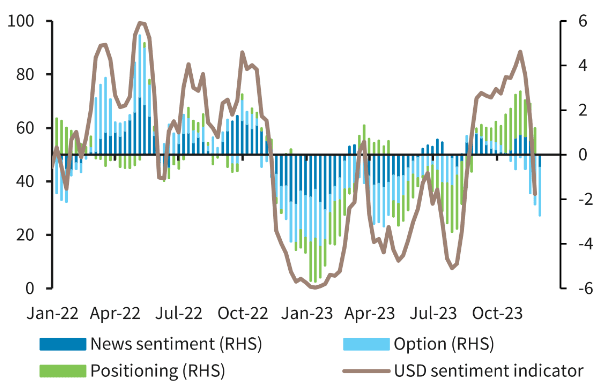GBP/USD: USD Selloff Looking Overdone Says Barclays
- Written by: Gary Howes

Image © Adobe Images
The Pound to Dollar exchange rate has risen amidst a broad-based selloff in the Dollar, but at the start of December, that move now looks stretched, according to one of the world's largest investment banks.
Barclays says in a regular weekly foreign exchange note that the "USD sell-off is looking overdone" as "Fed pricing has shifted too dovish too fast".
"Dollar sentiment has turned negative again, and ex-US growth momentum remains sluggish. Risk-reward is therefore shifting back in favour of the greenback," says Themistoklis Fiotakis, an analyst at Barclays in London.
The Pound-Dollar exchange rate has risen for four of the past five weeks, scaling to a high of 1.27, which was last seen in August.
But there are signs of fatigue setting in, with the pair seemingly now capped at the 1.27 level.
GBP to USD Transfer Savings Calculator
How much are you sending from pounds to dollars?
Your potential USD savings on this GBP transfer:
$1,702
By using specialist providers vs high street banks
At the start of the new week, Pound-Dollar staged a decent retracement back to 1.2618, validating warnings in some corners of the market that the Dollar's selloff was potentially overdone.
According to Barclays, the recent USD selloff results from U.S. interest rate expectations repricing substantially lower relative to other G10 central banks ever since October's soft CPI inflation surprise.
This dovish repricing was reinforced by Federal Reserve Governor Waller's remarks last week that the time to consider cuts in the discussions at the Fed was nearing.
Above: USD sentiment has reversed sharply. Image courtesy of Barclays.
At the same time, the sentiment on the Dollar has been seen flipping into negative, providing a counter-trend signal: "risk-reward is shifting back in favour of the dollar," says Fiotakis.
Barclays's analysis finds the repricing of Fed expectations has pushed farther away from the Taylor rule-implied policy rate gaps against G10 peers.
Furthermore, the bank says it is unlikely that the Fed will underwrite the market's overly benign view of 'immaculate disinflation' at its meeting later this week, particularly if key data this week are strong.
Another consideration is that economic growth outside of the U.S. remains subdued, denying other currencies the fuel they require to rally against the USD.
Barclays notes China's November PMIs contracted further, and the Eurozone's PMIs remain stuck at the lows while inflation in the region eased more than expected in November.
"In short, rates convergence as priced does not appear to be backed by a similar degree of macro convergence yet," says Fiotakis.
GBP to USD Transfer Savings Calculator
How much are you sending from pounds to dollars?
Your potential USD savings on this GBP transfer:
$1,702
By using specialist providers vs high street banks





